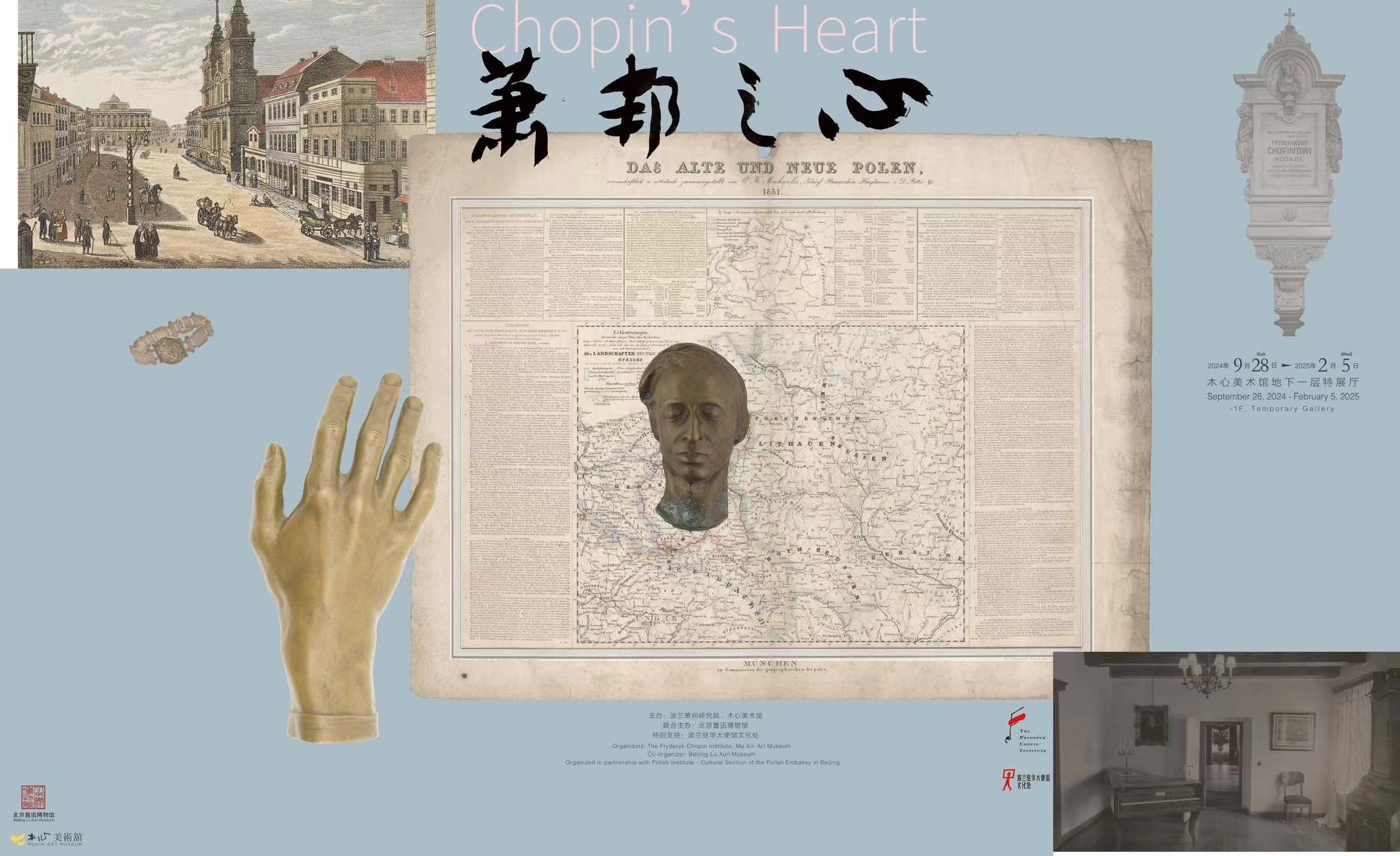Duration: September 28, 2024 - February 5, 2025
Venue: B1F,Temporary Gallery
Organizers: The Fryderyk Chopin Institute, Mu Xin Art Museum
Co-organizer: Beijing Lu Xun Museum
Organized in partnership with Polish Institute - Cultural Section of the Polish Embassy in Beijing
Looking back in his late years, Mu Xin recalled writing the following verses in his youth:
Music is my life, love my affliction.
Beethoven is my god, Chopin my heart.
Mu Xin was twenty years old when he declared Frédéric Chopin to be his heart.
When Chopin was twenty, in October 1830, he traveled to Paris. One month later, he learned that his homeland had erupted in an uprising against occupation by Tsarist Russia. His young companions immediately returned home to fight, and Chopin was moved to do the same, but his family and friends convinced him to remain in France, saying: you are an emissary of Polish culture. Your weapon is your music.
The stormy C minor Étude Op. 10, No. 12 is a piano work Chopin composed at this time. It has been called the Revolutionary Étude.
A year later, the uprising failed, Poland was destroyed, and Chopin never set foot in his homeland again. Shortly before he died in 1849, his sister Ludwika traveled to Paris to care for him. As he neared death, he asked her: please bring my heart back to the motherland. Using a small crystal jar, Ludwika embalmed her brother's heart in brandy, sealed it, concealed it in her skirt, and crossed the border, bringing it back to their home.
Twenty years later, Ludwika bequeathed her brother’s heart to the Holy Cross Church in Warsaw, where the crystal jar was embedded in a pillar behind a plaque bearing Chopin’s likeness. In 1944, at the height of the Second World War, the crystal box was removed to avoid destruction. After the war, the president of Poland retrieved the jar. It was carried in a procession around Chopin’s former home and returned to the pillar at Holy Cross Church. Seventy years later, due to worries about possible decay, the Fryderyk Chopin Institute removed the crystal jar in 2014 for examination, finding that it remained perfectly preserved. An American scientist recommended chemical analysis and high-tech preservation measures, but the Polish people insisted it be kept the way it was, and sealed the crystal jar back in the pillar.
“Chopin’s importance to Poland is greater than Mozart’s importance to Austria.” That was the first thing the director of the Fryderyk Chopin Institute said to us. It is true: it is hard to find another musician who, like Chopin, is regarded as a national hero. No one can truly experience his 19 years of anguish at the loss of his country, but they can know him through his notes and his melodies. For nearly a century after, through thousands of performances by the most talented pianists, humanity has confirmed that this is Chopin, Poland's Chopin.
Chopin has awakened talent and passion in generations of Chinese pianists, and thousands of young Chinese pianists have stepped into the world of music playing him. This precious exhibition will give us a deeper, more profound understanding of Chopin, because China has its own memories of near total destruction. Elevating his patriotism and homesickness to the sounds of the piano, Chopin transcended the boundaries of time, but his last wish was to return his heart to his motherland.
We are deeply grateful to the Fryderyk Chopin Institute and Polish Institute-Cultural Section of the Polish Embassy in Beijing for their generous support, and the kind collaboration from Beijing Lu Xun Museum, so that Mu Xin's spirit can see his beloved Chopin in his own hometown.
Mu Xin Art Museum
September, 2024




